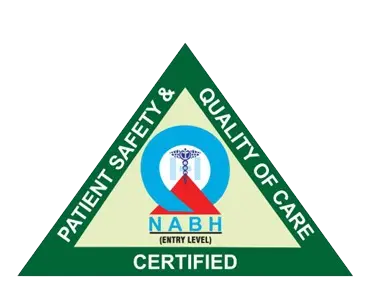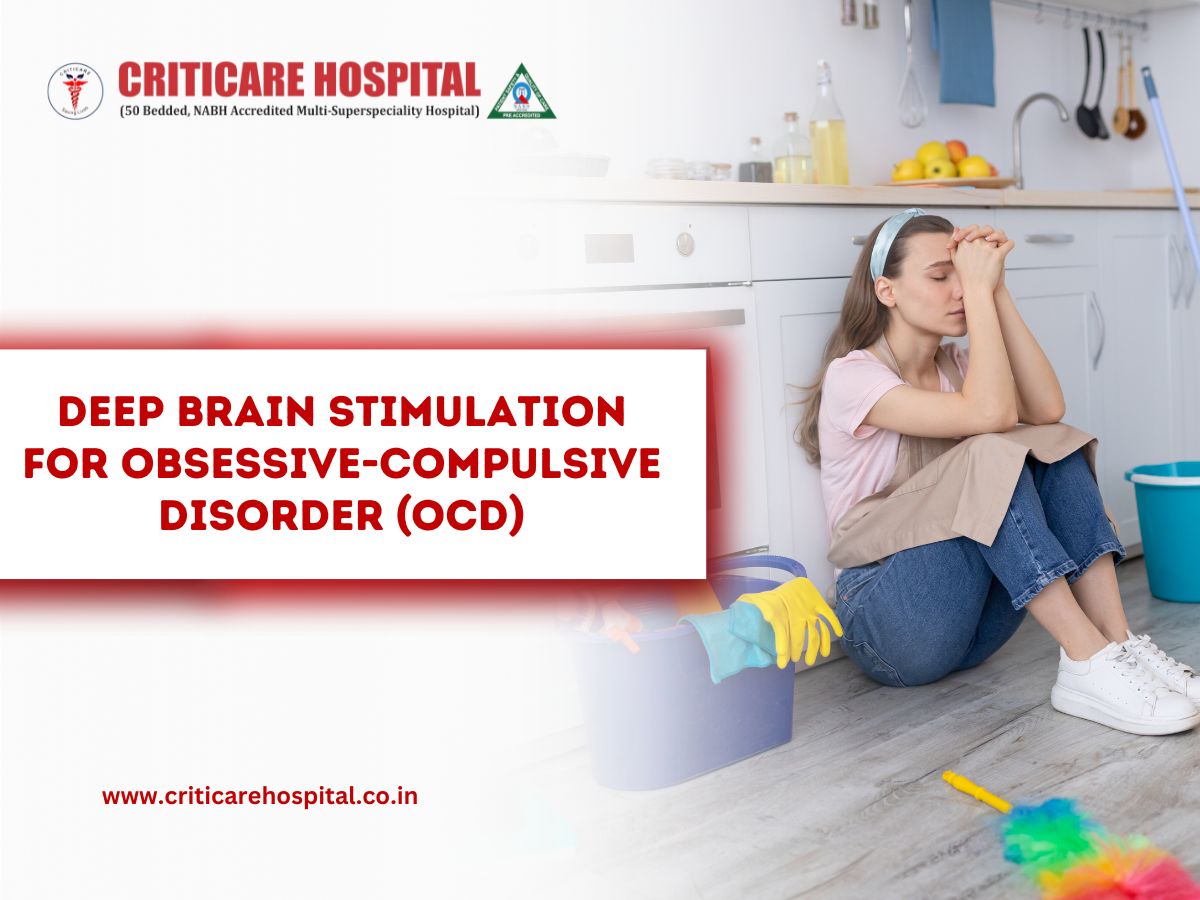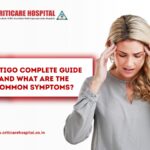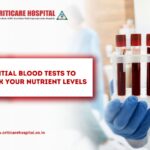Obsessive-Compulsive Disorder, or OCD, is not a continuation of habits and routines. It is a psychological condition in which the affected persons experience uncontrollable and repetitive thoughts, also called obsessions, and an overwhelming need to do some activities repeatedly, also called compulsions. Such obsessions and compulsions can interfere with normal life to such a degree that even routine functions are difficult and result in extreme emotional distress.
Despite the positive reaction of most patients to medicines and therapy, a few of them continue to struggle despite the attempts to undergo various treatments. Deep Brain Stimulation, or DBS, is one possible effective therapy solution to these treatment-resistant cases. Our mission at CritiCare Hospital Lucknow is to ensure that we clearly communicate to the patients (and their family) what exactly DBS is and how it will help them, and what they should expect during the treatment process, in a simple manner.
What is Deep Brain Stimulation (DBS)?
Deep Brain Stimulation is a form of surgery, and involves the insertion of electrodes in sections of the brain to control abnormal behaviour. This is like a pacemaker, only the stimulus being provided is the brain, by using low-level electrical shock to just even out the overstimulated neural pathways. Obsession and compulsive behaviours in OCD are due to the stimulation of certain brain networks and most specifically, the cortico-striato-thalamo-cortical loop.
The ability of DBS to reduce the intensity of obsessions and desire to engage in repetitive behaviour through modulation of such circuits will provide patients with more control over their thoughts and behaviour. Notably, DBS does not wipe the brain or change personality; It just helps the brain to work in a more normal way, relieving symptoms that were previously crippling.
Who is a Candidate for DBS?
Deep Brain Stimulation is not the initial therapy in the treatment of OCD, but rather something used on severe cases that did not respond to standard treatment. The patients who are eligible to receive DBS typically have attempted various drugs, antidepressants, SSRIs and even behavioural treatments such as Cognitive Behavioural Therapy without receiving proper relief.
Moreover, the candidates should be mentally and physically prepared to go through an operation and also be encouraged to take part in the follow-up treatment. In CritiCare Hospital, a departmental team of psychiatrists, neurologists, and neurosurgeons thoroughly considers each patient to identify the availability of DBS. This critical evaluation will make the process as safe as possible and likely to yield significant quality of life improvement.
The DBS Process: Step by Step.
It is a step-by-step procedure meant to assist in managing symptoms of OCD.
- A thorough pre-surgery assessment is the starting point of DBS. To precisely identify the areas of the target that can be electrode implanted, patients receive exhaustive brain imaging, either MRI or CT.
- Neuropsychological examinations are performed to assess cognitive ability, and medical examinations are performed to determine that the patient is physically fit to undergo surgery. This preparation is as safe and effective as possible.
- Thin electrodes are sometimes implanted during surgery in specific parts of the brain related to OCD behaviours, usually in the anterior limb of the internal capsule, subthalamic nucleus, and ventral capsule/ventral striatum.
- Once the electrodes are installed, a pacemaker-like small pulse generator is placed beneath the skin somewhere near the abdomen or the chest. This is the device which transmits the controlled electrical impulses to the brain using the electrodes and controls excessive circuits.
- After surgery, the stimulation is gradually optimised during a few weeks to determine the best settings to apply to each patient. Precision matters as the responses of each individual are different, and the appropriate settings can significantly influence the reduction of symptoms.
Benefits of DBS for OCD
DBS can assist patients and make them feel better about OCD and their lives:
- DBS is capable of drastically decreasing obsessions and compulsive behaviours and enabling patients to gain control over their everyday lives.
- The patients usually feel relieved and can resume activities which they were avoiding because of OCD symptoms.
- DBS increases the overall quality of life and lets people keep working, studying, and communicating, which raises the level of self-sufficiency and well-being.
- One particular benefit of DBS is that it can be inverted and modified.
- The stimulation is a safe and versatile treatment option because side effects are adjustable or can be switched off in response to them.
Risks and Considerations
DBS presents some risks like any other surgical activity, but severe complications occur rather rarely in the practice of experienced teams. Risks of infection, bleeding or stroke during surgery and these risks can be minimised by careful preoperative evaluation. Others can experience certain side effects during the stimulation process, such as tingling or mild muscle stiffness or a temporary shift in mood.
Fortunately, in most situations, this can also be corrected by modifying the stimulation settings. As good as it is, DBS is not a full cure as it can help to lessen symptoms of OCD. Treatment and psychological therapy should also be continued to remain emotionally healthy and live with fewer symptoms.
Success Rates and Evidence
In the last ten years, multiple studies have shown that DBS is effective in the treatment of OCD that is resistant to treatment. Symptoms are reduced in about 50 to 60 per cent of patients, and in many people, daily functioning and general quality of life improve.
rch also indicates that DBS is most effective when used in conjunction with post-surgery behavioural therapy, including exposure-response prevention, which involves having patients practice coping with the remaining compulsions in actual real-life experiences. We operate on an international set of guidelines and close on results at CritiCare Hospital to ensure that each patient gets the best care and support that they can get.
Life After DBS
The DBS recovery is both physical and involves adapting to the new stimulation. A typical patient will spend several days in the hospital after surgery to be monitored and have the initial programming of the device. Visits are made regularly to optimise the stimulation parameter, evaluate mood and mental capabilities and manage side effects.
A key component of ongoing therapy is the success of the therapy in the long term. Cognitive Behavioural Therapy (or any other systematic psychotherapeutic intervention) assists most patients in empowering their new coping skills and progressing continuously. The majority can regain daily activities, but some limitations might be present in the first phase of recovery (like not being able to lift heavy, etc.). A psychiatrist treating someone may also prescribe medication changes that optimise the management of symptoms.
Conclusion
Deep Brain Stimulation is a life-altering alternative to the treatment of severe intractable OCD. DBS assists in relieving patients of obsessions and compulsions that they otherwise might feel powerless about by balancing the overactive brain circuits, which enables patients to overcome their thoughts and behaviour. DSB is not a miracle drug, but it is a powerful drug which, when combined with therapy and full support, will transform the lives of patients who have spent years living with this debilitating condition.
In CritiCare Hospital Ashiyana Lucknow, we believe in providing high-quality expert care to patients and families whose lives are marked by OCD. Our team will take you through all the stages of treatment and keep you safe, with personalised care and a focus on enhancing the overall quality of life. To those who have never gotten relief using traditional methods, DBS brings a brand new sense of hope and of being able to reclaim life and turn OCD around.




